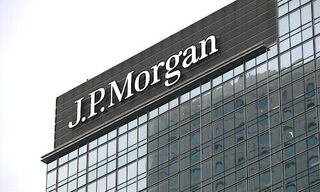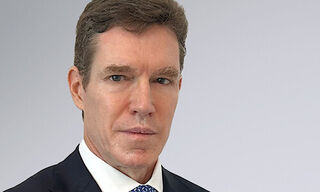Scholars at HKU take stock of the existentialist qualms facing the city’s linked exchange rate, which turned 40 last year.
Going by a very cursory look on Google search, Hong Kong’s peg would be a first- or maybe second-year millennial – if it were human at all.
As the first of that generation faces off against a looming midlife crisis, the peg also seems a bit perplexed, albeit not from age, but mainly from the geopolitical strains between China and the US - and a sharp increase in imported interest rates that do not reflect local economic conditions.
Future Predictions
Partly because of that, the internet in recent years has been littered with articles and commentary, finews.asia included, speculating about the system’s stability, and even legitimacy.
Despite the noise, the mechanism holds the city’s currency true and fast to a narrow band of 7.75 and 7.85 to the US dollar.
Not Going Anywhere
Nevertheless, the current situation is severe enough for scholars at the University of Hong Kong to weigh in according to a recent green paper on economic policy.
Their view is a clear one - the peg stays and shouldn’t change one bit.
Acknowledging Challenges
They did, however, acknowledge it was «facing challenges», the key of which was the charged relationship between the US and China, which it elegantly characterized as one of «growing complexity».
They also conceded pressure from the de facto importing of high American interest rates, something finews.asia has commented on at length.
Not the Same
«Although Hong Kong has not experienced the same level of inflationary pressure as the US, due to the linked exchange rate system, it is forced to raise interest rates, which is detrimental to the local economy,» they stated.
They weren’t quite as deadpanned about the third major trial that the peg is being subject to - hedge funds.
Betting Against It
«Several well-known hedge funds have publicly announced that they are shorting the Hong Kong dollar through options positions, betting that the current linked exchange rate system will come to an end,» the authors wrote.
The impact of all this? The city’s foreign currency reserves are now down 15 percent since peaking in 2021 following repeated testing of the weak side of the peg’s band.
Standing Firm
That turns their view into more than an opinion but more of an unwavering stand.
But it is not an unfounded one, they go on to argue, in the belief that keeping to the mechanism confers «more long-lasting» benefits, particularly as they believe that the international and political challenges are «temporary».
No Equity Here
According to them, foreign debt financing totaled $1.5 trillion in 2022 in the city, four times GDP, and much higher than its overtly media-hogging cousin, equity finance.
Kicking Hong Kong’s dollar habit would significantly limit that kind of activity, they believe. For one, local investors usually want to hold debt in their home currency while foreign investors do not.
No Choice
«Therefore, if the Hong Kong dollar were floating, businesses would struggle to attract foreign investors through Hong Kong dollar debt and would need to issue foreign currency debt such as US dollars, euros, pounds, or yen to attract the corresponding investors. Large enterprises would face higher financing costs and risks, while small enterprises would have no choices,» they stated.
They had another caveat. Small and medium-sized companies in Europe, the UK, and Canada found it challenging to issue foreign currency debt and had to rely on US dollar debt issues instead.
Key Advantage
«This is one of the many advantages of the US-dominated international financial system for the United States. Under the current linked exchange rate system, businesses in Hong Kong also enjoy this financing advantage,».
Moreover, issuing foreign currency debt in Hong Kong exposes businesses to changing exchange rates. The amount they would have to repay in city currency remains the same while it almost invariably rises in local currency terms, erasing the advantages of certainty that fixed-income instruments have.
Coupled and Decoupled
Getting Hong Kong off the US dollar treadmill would expose the city to $1.2 trillion in currency risk exposure, or most of all debt issued, which would create systemic risks.
Keeping the peg also lowers financing costs, lowering yields by as much as 1.8 percent for US dollar bonds when compared with other currency issues with the same risks, something it termed as being «extremely attractive».
Indirect Trade
Another important facet is international trade - given that volumes in the city are more than four times GDP.
«Entrepot trade accounts for a large proportion of Hong Kong’s international trade, as Hong Kong plays the role of trade intermediary and logistics center. In trade settlement, currencies of other countries and regions, including the Chinese yuan, have a certain proportion besides the Hong Kong dollar and the US dollar,» the authors say.
Basket of Currencies
Still, several «traditional views» are out there in the wild, asking for the Hong Kong dollar to be pegged to a basket of currencies, much as Singapore does, as one way of cutting exchange rate risk.
«However, recent studies have shown that regardless of the currency used for settlement, the price of goods in international trade remains stable against the US dollar. In other words, using local currency for settlement does not eliminate exchange rate risk in trade, and the best way to reduce risk is to peg to the US dollar,» the authors write.
Limited Autonomy
The same holds for monetary policy. Even though the impact of linking the local currency to the dollar is painful given the fact that interest rates have gone from zero to 5.25 percent in the US in two years flat, they go one step further.
A city like Hong Kong has limited autonomy to set monetary policy whatever the case.
Not Altogether Logical
«The traditional view is that if a central bank can autonomously formulate monetary policy, then monetary policy can adjust local employment and inflation, while a floating exchange rate can achieve external balance. However, this logic only applies to large countries where manufacturing of tradable goods is the main production, not to economies like Hong Kong, where re-export trade is the main activity,» the authors state.
Promoting Trade
That leads us to the last option and the one that many in the city have been the most vocal about. Pegging the Hong Kong dollar to China’s renminbi for political considerations and as a way of promoting trade, particularly as more than half of total external trade is to the mainland.
The problem here is that most trade continues to be in US dollars, and firms on the mainland need to bear in mind when setting prices and sending out invoices internationally regardless.
Limited Impact
«Since goods prices are relatively stable with respect to the US dollar, the exchange rate risk faced by Mainland enterprises and Hong Kong trading companies is similar to that under the current linked exchange rate system. Therefore, pegging with the renminbi may have limited impact on the overall trade volume, even if trade with the Mainland increases,» the authors write.
Moreover, it «remains uncertain» whether pegging the Hong Kong dollar to the renminbi would help the latter to become more palatable internationally.
Keep the Status Quo
In short, the main conclusion. Existentialist or mid-life crisis here or there, the recommendation to the city government is really quite simple. The more things change, the more they stay the same.
In matters of money - that seems to count for something.
This is the second article in an impromptu series discussing the HKU green paper, with a further upcoming piece to discuss an apparent brain drain out of the city.



























